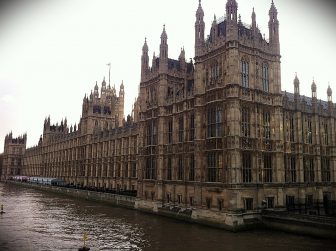 The Leasehold Reform Bill, designed to restrict ground rents on lengthy residential leases, was debated at a second reading in the House of Commons this week and approved unopposed.
The Leasehold Reform Bill, designed to restrict ground rents on lengthy residential leases, was debated at a second reading in the House of Commons this week and approved unopposed.
The bill has now been sent to a public bill committee which will scrutinise it and report back to the House by 9 December.
There will be a third reading in the House of Commons, before the bill goes into the final stages where amendments are considered and then it is granted royal assent and passed.
Jonathan Frankel, litigation partner at Cavendish Legal Group, said: “It is incredibly positive that the Leasehold Reform Bill has passed its first stage in the Commons unopposed. It clearly shows the direction of travel away from exorbitant leasehold rents, down to nothing.
“Anyone buying a new property now also has the reassurance that developers can only charge a peppercorn rent on all new leasehold properties, which is effectively zero.
“The same applies to anyone extending their leasehold under the statutory route in that they will be able to reduce the amount they pay to next to nothing. This is currently subject to a two-year ownership provision. Whether that onerous condition stays put through the parliamentary reforms remains to be seen.
“The government now needs to go a step further and introduce nothing more than a peppercorn leasehold rent for all existing leaseholds.”

This is good news about new properties. However I don’t see how they can reduce current leases to peppercorn without reimbursing the Freeholders’ losses if they have bought the freehold for a price based on the current ground rent arrangements. Much as I disagree with exorbitant ground rents and ground rent reviews that are not index linked, removing them nationally at government level smacks of communism.
You must be logged in to like or dislike this comments.
Click to login
Don't have an account? Click here to register
Agreed. A Lease is a legal Contract. In order for it to be amended – or in this case be ripped up and a new Lease created – it must be agreed and endorsed by all parties. Who is supposed to be paying for all the work involved in drawing up new Leases for the 0000s of ‘affected’ properties and chasing down the parties to get them ratified?
I don’t think anyone has used joined-up thinking here. The size of this particular can of worms is pretty substantial.
You must be logged in to like or dislike this comments.
Click to login
Don't have an account? Click here to register
“I don’t think anyone has used joined-up thinking here”
Something the Government has been severely lacking for long while, especially relating to the property industry.
You must be logged in to like or dislike this comments.
Click to login
Don't have an account? Click here to register
I expect this will involve yet more badly drafted and ill thought out red tapoe top waste yet more of our time.
The present leasehold system is fine an d suits the English property market. It just requiured a few twieeks to make it perfect.
Vested interests thought otherwise.
Our working week to produce profits to enabe us to contrbute to taxes is yet further reduced.
The private sector is unlike the Civil Service we have to and need to make a profit for our own benefit and to pay oour taxes to pay the Civil Servants who impose the burfen of red tape on the private sector.
You must be logged in to like or dislike this comments.
Click to login
Don't have an account? Click here to register
I was just thinking about all the ground rent investments I sold in 2008/9 at a large multiple of the income generated.
You must be logged in to like or dislike this comments.
Click to login
Don't have an account? Click here to register